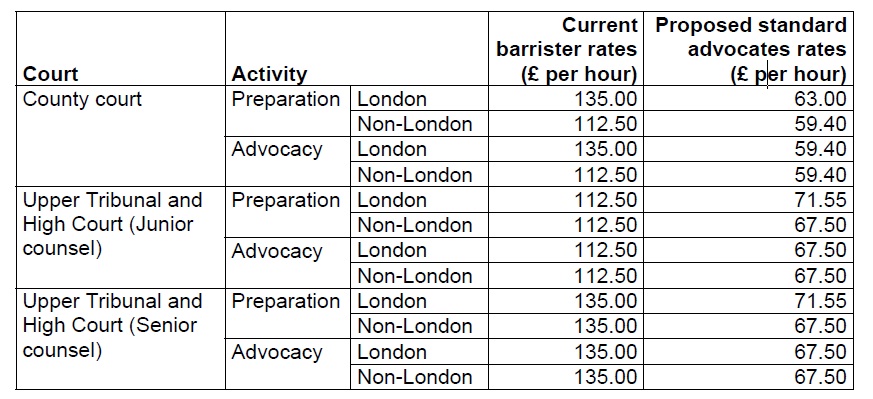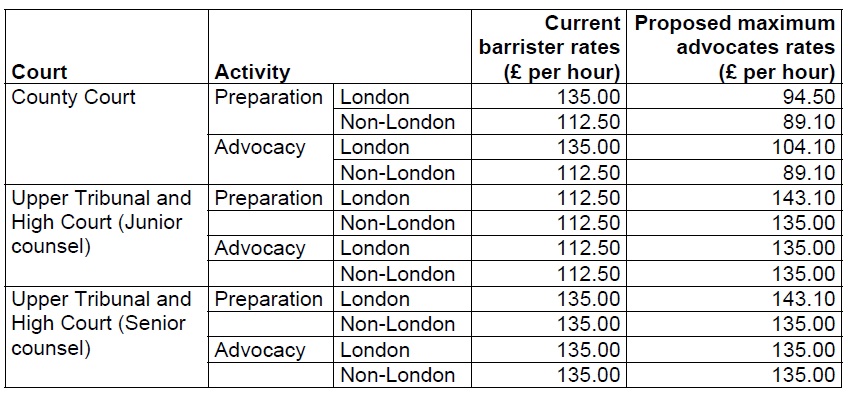No, it isn’t over yet. The MoJ has issued a consultation on the next round of legal aid cuts, called ‘Transforming Legal Aid’. There are some specific proposals that affect legal aid housing work. Hold on to your chairs…
Residence requirement for funding. 3.4 and 3.5 – to be lawfully resident and to have lawfully resided for 12 months in the past (not necessarily the immediately preceding 12 months). ‘Exceptional Circumstances’ exception and exception for armed forces and asylum seekers (not failed, post appeal asylum seekers).
Judicial Review (and remember devolved powers have been scrapped for JR except for HA 1996 and NAA 1941 cases), so in general there is already a merits test applied by the Legal Aid Agency). 3.69 – 3.78 Providers will only be paid for pre-permission work if permission is granted, though court fees and expert fees would still be paid (and JR issue fee supposedly to rise to £1500). If a claim is settled pre-permission, there will be no legal aid payment, regardless of benefit obtained. Only chance of getting costs is by settlement or court order from the Defendant. Settlement on terms of no order as to costs pre-permission means no payment at all.
Borderline chances of success. 3.86 – 3.87 No funding for borderline cases. Must have at least 50% chances of success, even in cases of overwhelming importance to the client.
Civil (non-family) Unified Advocacy Fee. 6.14 – 6.27 There will be a single rate for advocacy, based on solicitors’ rates.
The standard rates proposed are:
There are ‘enhanced fees’ proposed for ‘complex cases (see annex I – copied in comment below):
Oh and travel and waiting standardised at £29.93 ph (High Court/Upper tribunal) or £26.28 ph (County Court)
The revised fees do not apply to Court of Appeal or Supreme Court.
Expert’s fees 7.10 – an across the board 20% reduction in the current expert’s fees payable per hour. (And this after a sustained battle finally got the MoJ to revise surveyors’ fees to a more or less workable level last autumn, where they had initially been based on ‘drive by valuation’ fees in criminal and family matters.)
I’ll leave you to digest the consequences of all of this should it happen. (Think of all those JRs of refusal to provide interim accommodation settling after issue, but before permission, on grant of interim relief. Think of the only disrepair funding being for ‘urgent’ cases, where an expert report couldn’t be obtained for months, if at all. Etc…)
The consultation closing date is 4 June 2013. Respond early, respond often..
*It is an accurate title from the MoJ. Ceasing to exist is a form of transformation.


Here are the Enhancement provisions
“Hourly Rates enhancements
The following rules apply only to remuneration by way of Prescribed Rates under the Remuneration Regulations (but excluding for this purpose any determination as to whether a case escapes from any Standard Fee or Graduated Fee – see Category Specific Rules). No other form of enhancement or uplift is payable for such work.
The threshold test: on assessment of Licensed Work we or the court may allow fees at more than the Prescribed Rate in respect of any item or class of work where it appears, taking into account all the relevant circumstances, that:
(a) the work was done with exceptional competence, skill or expertise;
(b) the work was done with exceptional speed; or
(c) the case involved exceptional circumstances or complexity.
Where we or the court consider that any item or class of work should be allowed at more than the Prescribed Rate, it shall apply to that item or class of work a percentage enhancement in accordance with the following provisions.
In determining the percentage by which fees should be enhanced above the Prescribed Rate we or the court shall have regard to:
(a) the degree of responsibility accepted by the legal advisor;
(b) the care, speed and economy with which the case was prepared; and
(c) the novelty, weight and complexity of the case.
The percentage above the Prescribed Rate by which fees for work may be enhanced shall not exceed 50%. The exception to this is that in proceedings in the High Court, Court of Appeal, Upper Tribunal or Supreme Court, we or the court may allow an enhancement not exceeding 100% where it is considered that, in comparison with work in other proceedings in those courts which would merit 50% enhancement, the item or class of work relates to exceptionally complex matters which have been handled with exceptional competence or speed.
We or the court may have regard to the generality of proceedings to which the relevant Prescribed Rates apply in determining what is exceptional within the meaning of this provision.”
If it was ye olde days I would challenge Chris Grayling to a duel at dawn.
It looks like he’s in the good old days as he seems to think rates from the 1960’s are appropriate
‘Murdering legal aid’ would be a better adjective for the MOJ